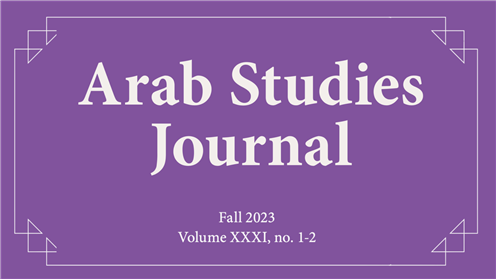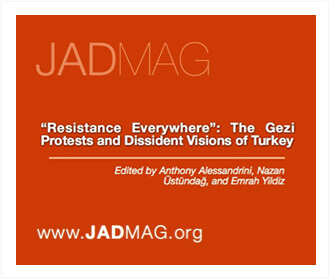<!--/* Font Definitions */@font-face{font-family:Arial;panose-1:2 11 6 4 2 2 2 2 2 4;mso-font-charset:0;mso-generic-font-family:auto;mso-font-pitch:variable;mso-font-signature:-536859905 -1073711037 9 0 511 0;}@font-face{font-family:Times;panose-1:2 0 5 0 0 0 0 0 0 0;mso-font-charset:0;mso-generic-font-family:auto;mso-font-pitch:variable;mso-font-signature:3 0 0 0 1 0;}@font-face{font-family:\"MS 明朝\";mso-font-charset:78;mso-generic-font-family:auto;mso-font-pitch:variable;mso-font-signature:-536870145 1791491579 18 0 131231 0;}@font-face{font-family:\"Cambria Math\";panose-1:2 4 5 3 5 4 6 3 2 4;mso-font-charset:0;mso-generic-font-family:auto;mso-font-pitch:variable;mso-font-signature:-536870145 1107305727 0 0 415 0;}@font-face{font-family:Cambria;panose-1:2 4 5 3 5 4 6 3 2 4;mso-font-charset:0;mso-generic-font-family:auto;mso-font-pitch:variable;mso-font-signature:-536870145 1073743103 0 0 415 0;}/* Style Definitions */p.MsoNormal, li.MsoNormal, div.MsoNormal{mso-style-unhide:no;mso-style-qformat:yes;mso-style-parent:\"\";margin:0in;margin-bottom:.0001pt;mso-pagination:widow-orphan;font-size:12.0pt;font-family:Cambria;mso-ascii-font-family:Cambria;mso-ascii-theme-font:minor-latin;mso-fareast-font-family:\"MS 明朝\";mso-fareast-theme-font:minor-fareast;mso-hansi-font-family:Cambria;mso-hansi-theme-font:minor-latin;mso-bidi-font-family:\"Times New Roman\";mso-bidi-theme-font:minor-bidi;}.MsoChpDefault{mso-style-type:export-only;mso-default-props:yes;font-family:Cambria;mso-ascii-font-family:Cambria;mso-ascii-theme-font:minor-latin;mso-fareast-font-family:\"MS 明朝\";mso-fareast-theme-font:minor-fareast;mso-hansi-font-family:Cambria;mso-hansi-theme-font:minor-latin;mso-bidi-font-family:\"Times New Roman\";mso-bidi-theme-font:minor-bidi;}@page WordSection1{size:8.5in 11.0in;margin:1.0in 1.25in 1.0in 1.25in;mso-header-margin:.5in;mso-footer-margin:.5in;mso-paper-source:0;}div.WordSection1{page:WordSection1;}-->
Ella Habiba Shohat is Professor of Cultural Studies at New York University. Her books include: Taboo Memories, Diasporic Voices (Duke Univ. Press, 2006); Israeli Cinema: East/West and the Politics of Representation (Univ. of Texas Press, 1989; Updated Edition with a new postscript chapter, I.B. Tauris, 2010); Talking Visions: Multicultural Feminism in a Transnational Age (MIT & The New Museum of Contemporary Art, 1998); Dangerous Liaisons: Gender, Nation and Postcolonial Perspectives (co-edited with Anne McClintock & Aamir Mufti, Univ. of Minnesota Press, 1997); and with Robert Stam, Unthinking Eurocentrism (Routledge, 1994), winner of the (Katherine Kovacs Singer Best Book Award); Multiculturalism, Postcoloniality and Transnational Media (Rutgers Univ. Press, 2003); Flagging Patriotism: Crises of Narcissism and Anti-Americanism (Routledge, 2007); and Race in Translation: Culture Wars Around the Postcolonial Atlantic (NYU press, 2012). Shohat’s co-edited (with Evelyn Alsultany) volume Between the Middle East and the Americas: The Cultural Politics of Diaspora is just out from Univ. of Michigan Press. Her writing has been translated into diverse languages, including: French, Italian, Portuguese, Spanish, German, Arabic, Hebrew, Turkish, Polish, and Romanian. Shohat has also served on the editorial board of several journals, including: Social Text; Critique: Critical Middle Eastern Studies; Meridians: Feminism, Race, Transnationalism; Interventions: International Journal of Postcolonial Studies; and Middle East Journal of Culture and Communication. She is a recipient of such fellowships as Rockefeller and the Society for the Humanities at Cornell University, where she also taught at The School of Criticism and Theory. She was awarded a Fulbright research / lectureship at the University of São Paulo, Brazil, for studying the cultural intersections between the Middle East and Latin America.















